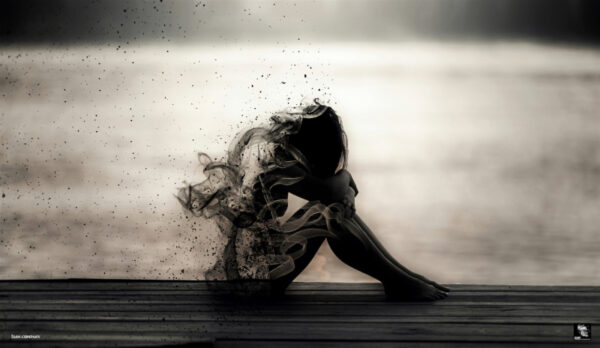
Grief is a state we would all rather avoid. The death of a loved one is always a tragedy. We are not prepared for it. We don’t know how to ease the pain or how to help our suffering loved ones. How do we cope with loss?
Grief is most commonly experienced after the loss of a close family member or friend. When someone dies, their suffering ends. Those who become orphans are plunged into despair. When mourning the loss of a loved one, they must face exceptionally strong emotions and difficult decisions related to, for example, organizing a funeral. Everything happens quickly, in great tension, and then many things simply overwhelm them.
No one can understand the grief of losing a loved one – only those who have experienced it themselves. In an instant, a person loses peace, order, and a sense of security. They no longer feel the touch of their loved one, miss their smile, voice, daily conversations (and arguments), plans for the future, walks, and shared Christmases.
Grief: how to survive this difficult period?
Grief is a “spiritual wound.” Healing takes a long time and leaves scars. Each of us experiences the death of a loved one in our own way. How grief will proceed and when (and if ever) it will pass depends on various factors – who the deceased was to us and how much turmoil their death caused in our lives. Our age and the age of the person we lost are also important.
However, there is a way that is universal for everyone. If you study its stages, it will be easier to understand what is happening to you and how you can help yourself and your loved ones in this difficult period. Remember, however, that not everyone has to go through the stages of grief. Some people become silent, others cry, or are hysterical. Some seek support, others seek shelter.
The first stage of grief: shock and numbness
This stage usually occurs immediately after the death of a loved one. It may be accompanied by psychological shock, which can be manifested, for example, by denial of what happened. Sometimes a person does not want to admit the tragic truth at all – such reactions most often occur when the death was sudden and unexpected. Shock may be milder if the death was preceded by a long, incurable illness.
The second stage of grief: yearning and regret
A person in grief feels a yearning for the deceased: they cry, seek them out, remember them, and sometimes even think they will meet them again. At the same time, they feel anger towards themselves and fate, as well as a sense of guilt for not being able to do anything to save their loved one. This stage is often associated with the most intense grief.
The third stage of grief: disorganization and despair
The grieving person cannot return to normal life. They feel hopelessness, helplessness, loneliness, fear, and grief. They isolate themselves from people, see no sense in anything. Grief robs them of a sense of security, identity, and purposefulness because the close emotional bond has been broken and the sense of dependence on the other person has been disrupted. Phases 2 and 3 overlap for a certain period of time.
The fourth stage of grief: reorganization
At this stage, people usually accept the loss and slowly regain their balance. The pain is less intense, making the sense of loss more bearable. Although time may not seem like the best medicine in this situation, it still passes, and life gives us more and more new tasks. The past recedes, and although it will never be forgotten, the person who has experienced the death of a loved one will arrange their life without them.
